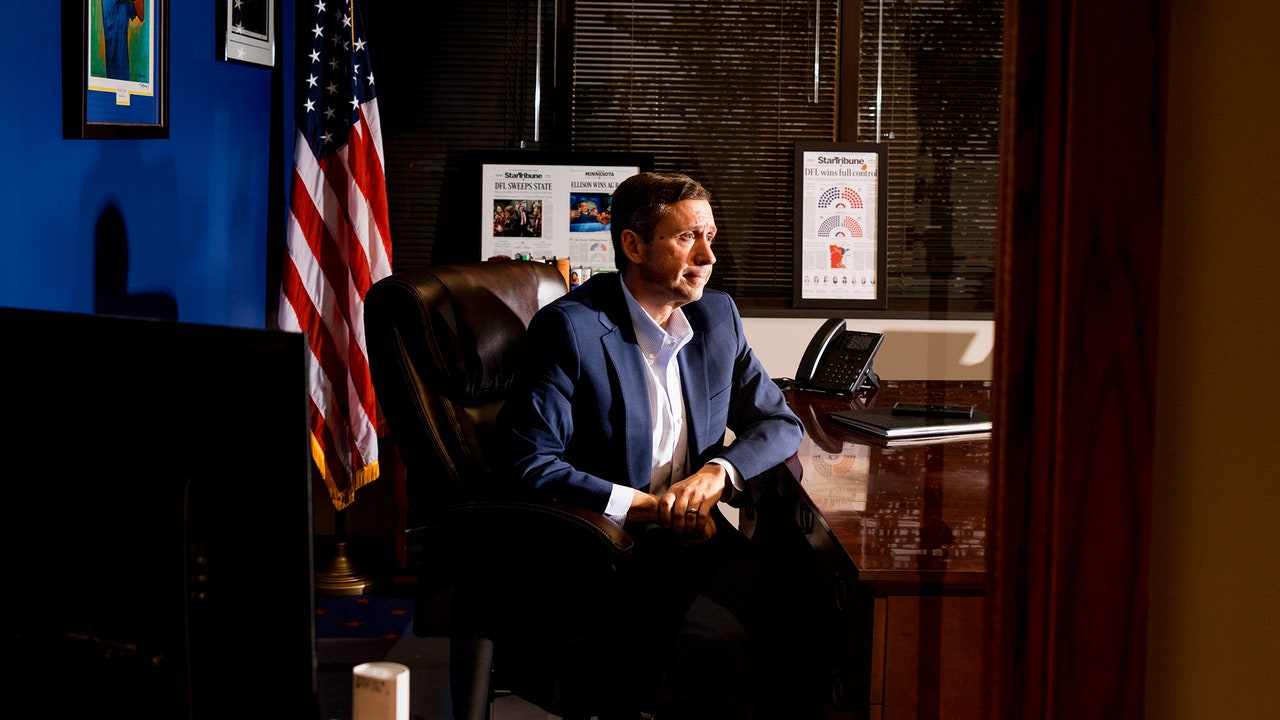
Ken Martin sees Donald Trump’s victory last month as a “damning indictment” of the Democratic brand. But Martin, a vice chair of the Democratic National Committee and a top candidate to succeed Jaime Harrison as its leader, doesn’t think the party needs to start its rebuild from scratch: “I’m not one of these burn-it-down-type people,” he tells me.
As he sees it, the answer to both defeating Trump and making Democrats more competitive down the ballot and across the country is overhauling the Democratic messaging apparatus, expanding campaign infrastructure, and thinking more long term about strategy. “We have to essentially build to where things will be with a much longer arc than just one election cycle,” says Martin, who has led the Minnesota Democratic-Farmer-Labor Party since 2011. “We can’t just keep focusing on one cycle or one presidential year.”
In a conversation, which has been edited for clarity and length, Martin talks about how he’d replicate his success in Minnesota on a national level, how Democrats can fight back against a second Trump term, and how his hopes were dashed in 2024: “We asked Kamala Harris and Tim Walz to do the improbable,” the DNC chair candidate says.
Vanity Fair: What have you made of the Trump transition so far? I don’t know if you caught his press conference this week, but what’s been your general impression this time around versus 2016?
Ken Martin: Look, none of what we are seeing right now should surprise any of us, right? He told us on the campaign trail what he would do, and he’s doing it. This is a point we tried to make, albeit unsuccessfully, to the American people—that Donald Trump was and continues to be a threat to our democracy and to our democratic institutions. There’s no greater evidence of that than the people that he’s nominating to his Cabinet, who are, by and large, wholly unqualified to hold these positions, and certainly a danger to not only those agencies but the American people. I don’t think it’s hyperbolic to say that what we said on the campaign trail is now coming into focus and into reality.
He’s suing a pollster. He’s going after The Des Moines Register for election interference. The American people didn’t vote for any of that. What they wanted was an administration that’s going to help make their lives more affordable and easier to live, and he’s really not focused on any of that. In fact, he’s backtracking on the promise he made to bring down grocery prices, as an example. So I think it’s a responsibility of the Democratic Party, and, frankly, other organizations right now, to stand up and resist the excesses and extremes of the Trump administration—but not to completely live in that space either, right? Because if that’s all we’re doing, then it means we’re not doing the critical work of reestablishing ourselves, reestablishing our brand, and really connecting with voters again. But none of this should surprise anyone at this point. It’s exactly who he is. And you know the Maya Angelou quote: “When people show you who they are, believe them the first time.”
So how do Democrats beat him? The party has lost two out of three elections to him at this point, and it feels like things are going backward. In 2016 he started out as a joke to a lot of people. Then he was seen as a threat. Now he’s being treated by a lot of people as somewhat mainstream. It feels like we’re not just recovering from a tough election—it feels like we’re digging out of a really deep hole.
I think that’s an accurate assessment. I mean, it was a really close election, as you know. But the reality is, it’s bigger than that. People are deeply concerned. And so, to beat Donald Trump, it’s twofold: One, again, we have to stand up and resist the excesses and extremes of this administration and make sure that people see us fighting back, particularly on some of the more devastating policies that he said he’s going to pursue, which are going to shatter people’s lives and divide communities throughout this nation. But at the same time, we also have a responsibility to give people a sense of who we are as a party and what we’re fighting for.





